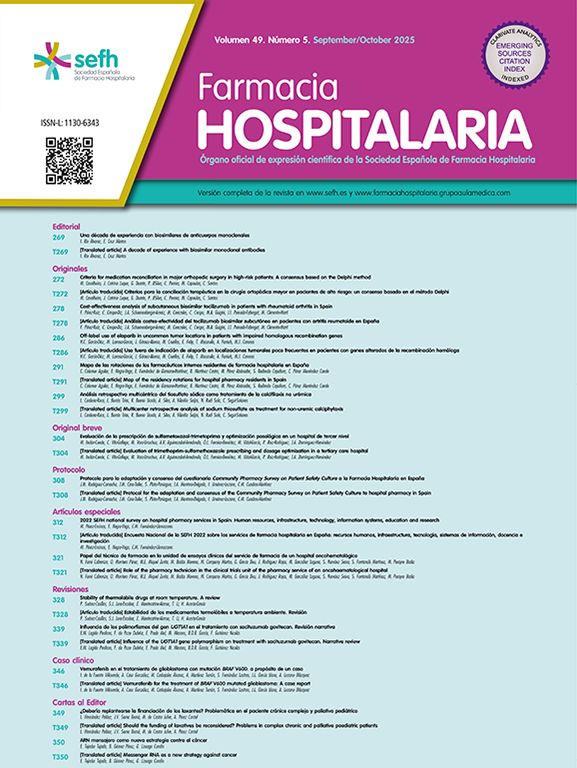To assess the effectiveness and safety of using 5-azacitidine to treat myelodysplastic syndromes.
MethodsReview of medical records of patients who received 5-azacitidine 75mg/m2 subcutaneously for during 7 days every 28 days in twelve cycles as compassionate use. We evaluated the objective response, clinical improvement and time to disease progression. We recorded adverse reactions described in the medical history.
ResultsSix patients were candidates for treatment with 5-azacitidine. Three cases were evaluated over the study period. Most remained in partial response or better after the study, and no longer needed transfusions. In one patient, the treatment appeared to delay progression to leukaemia.
Conclusions5-Azacitidine might be considered an effective and relatively safe drug, and may have contributed to controlling peripheral cytopenias, improving the quality of life and delaying progression to leukaemia. Additional studies with more patients are needed to support these results.
Evaluar la efectividad y seguridad del tratamiento con 5-azacitidina en síndrome mielodisplásico.
MétodosRevisión de historias clínicas de pacientes que recibieron 5-azacitidina 75mg/m2 subcutánea durante 7 días, cada 28 días en 12 ciclos. Se valoró la respuesta objetiva, mejoría clínica y tiempo hasta la progresión de la enfermedad. Se recogieron las reacciones adversas descritas en la historia clínica.
ResultadosSeis pacientes fueron candidatos a tratamiento con 5-azacitidina. Tres casos fueron evaluables tras el período considerado. La mayoría permanecieron en respuesta parcial o mejor al finalizar el estudio, dejando de precisar transfusiones. En una paciente se retrasó la progresión a leucemia.
Conclusiones5-Azacitidina podría considerarse un fármaco relativamente efectivo y seguro, pudiendo haber contribuido al control de citopenias periféricas, a mejorar la calidad de vida y a retrasar la progresión a leucemia. Serían necesarios estudios con mayor número de pacientes que corroborasen estos resultados.





